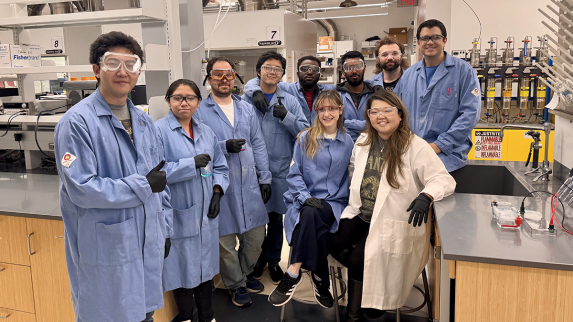A researcher and assistant professor of chemistry and chemical biology has received the Maximizing Investigators’ Research Award (MIRA) from the National Institutes of Health (NIH) to advance nucleic acid therapies as new generation treatments of cancer. Enver Cagri Izgu, from the School of Arts and Sciences at Rutgers-New Brunswick, and his team will use a nearly $2 million NIH grant to develop diverse molecules with “programmed functionality” to address the fundamental challenges in therapeutic approaches that rely on modulating gene expression.
The scientific community considers nucleic acid therapeutics to have the potential for long-lasting or permanent treatments and cures through gene modulation. However, several challenges could limit the use of nucleic acid therapy in health care, including poor target selectivity, biostability, and bioavailability, among others.
“Our lab is approaching these problems by designing chemical biology tools that are highly sophisticated and adaptable,” said Izgu. “The nature of the disease will determine which type of cell we will be working on and which targeting mechanism our molecular tools will utilize. This NIH-supported program will focus on some of the aggressive cancer types, including those with low survival rates. As part of our strategy, we aim to suppress the production of proteins associated with cancer cell growth and proliferation. In accordance, we will work on cancer cells with oncogenic levels of protein expression.” To read the full story.

